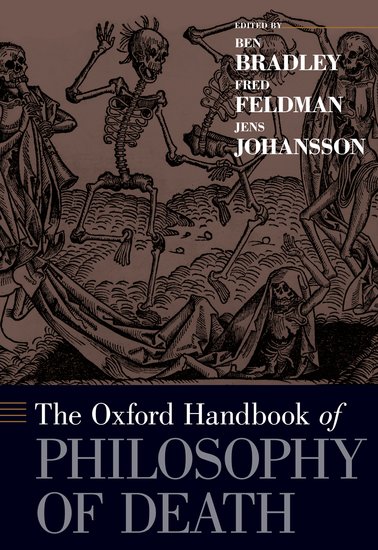By Louis René Beres
Whatever our faith-based differences concerning immortality, death has an unassailable biological purpose — to make species survival possible. Nonetheless, we humans need not always hasten the indispensable process with utterly enthusiastic explosions of crime, war, terrorism, and genocide.
In universities, where intellectual direction and fashion are now largely determined by numbing mimicry and raw commerce, our students need to learn something truly primal: An individual’s personal success can make genuine sense only if the larger world itself has a foreseeable and successful future.
This planet, reflecting its myriad constituent parts, faces stubbornly insidious problems. “The blood-dimmed tide is loosed,” once observed the Irish poet William Butler Yeats, and “everywhere the ceremony of innocence is drowned.”
Today, expanding global deterioration and chaos is more a symptom than an actual disease. Virtually all world politics hides an inconvenient truth. This is the ubiquitous and determined unwillingness of individuals to seek meaning and comfort within themselves. In consequence, our upcoming presidential election will have no real bearing on the basic issues of human survival. Neither candidate truly understands the inner meanings of world politics. And neither candidate has it within his conspicuously cultivated capacities to ever discover these vital meanings.
In the end, says Goethe, we depend upon creatures of our own making. Ultimately, what is needed to fix a broken planet must lie far beyond the fragmented unities and feuding tribes of life on earth. Only when we are finally allowed to see ourselves as a single species, can we humans seriously entertain any credible hopes of progress and survival. In principle, well-intentioned emphases on diversity need not represent a contradiction of our overriding species singularity, but these would require an explicit and prior affirmation of diversity itself as an intermediate step toward eventual human solidarity.
In one form or another, tribal conflict has always driven world affairs. Without a clear sense of an outsider, of an enemy, of an inferior, of an “other,” most people will feel altogether lost. Still drawing our critical sense of self-worth from membership, in the state, or the faith, or the race — from what Freud, borrowing from Nietzsche, had insightfully called the “horde” — we humans cannot satisfy even the most minimal requirements of coexistence.

The veneer of civilization continues to be razor thin. Our entire system of international relations is rooted in a deeply etched and endlessly recurring pattern of horror. The sanitizing name that we assign to this pattern is “history.” Perversely, within this seamless litany of harms, it can be fully “rational” to defile and destroy those who have the temerity to express different beliefs and affiliations.
This calculated destructiveness has been most evident, of course, whenever one “tribe” encounters another that seeks distinctly alternative paths to immortality. It becomes a fundamental problem in world politics, because in this broadest possible realm of human activity, there can be no greater power than power over death.
Seeing requires distance. In our current frenzied rhythm, breathlessness is de rigueur. The cascading horror of life on earth creates a deafening noise, but it is still possible to listen for more transient sounds of grace and harmony. To begin, however, we must first pay close attention to our most intimate human dispositions of empathy and compassion. In the concluding analysis, these private feelings are considerably more important to species survival than the comfortingly tangible expressions of science, industry, and technology.
With regard to human durability, the politicians and the professors are both grievously unprepared, and manifestly wrong. From a survival standpoint, the critical time for science, modernization, and globalization is pretty much over. To survive together all of us must soon learn to rediscover a life that is detached from tribal manipulations, unfounded optimism, and contrived happiness. Indeed, it is only in the midst of this suddenly awakened human spirit that we may finally learn something beyond the suffocating clichés and banalities of American presidential politics.
“The man who laughs,” understood the poet, Bertolt Brecht, “has simply not yet heard the horrible news.” Too many still laugh amid the incomprehensible global triumph of incommunicable pain, death, and decomposition. We humans still lack a tolerable future, not because we have been too slow to learn what can make us successful as individuals, but because we haven’t yet begun to learn that such success is always contingent. In the end, success must always depend upon much wider and interpenetrating patterns of human progress.
“The egocentric ideal of a future reserved for those who have managed to attain egoistically the extremity of `everyone for himself’ is false and against nature,” wrote the Jesuit philosopher, Pierre Teilhard de Chardin. “No element can move and grow except with and by all the others with itself.”
Louis René Beres was educated at Princeton (Ph.D., 1971), and is Professor of International Law at Purdue University. Born in Zürich, Switzerland, at the end of World War II, he is the author of many books and articles dealing with world politics, law, literature, and philosophy. He is a regular contributor to OUPblog.
If you are interested in the subject of the philosophy of death, you may be interested in The Oxford Handbook of Philosophy of Death, edited by Ben Bradley, Fred Feldman, and Jens Johansson. In 21 essays from leading philosophers, the handbook explores the current philosophical thinking of death-related topics across the entire range of the discipline, from the metaphysical questions over the nature of death to normative ethics.
Subscribe to the OUPblog via email or RSS.
Subscribe to only philosophy articles on the OUPblog via email or RSS.
View more about this book on the ![]()
![]()
Image credit: Broken Icy surface caused by ice breaker in frozen water. Photo by Orchidpoet, iStockphoto.


Recent Comments
There are currently no comments.